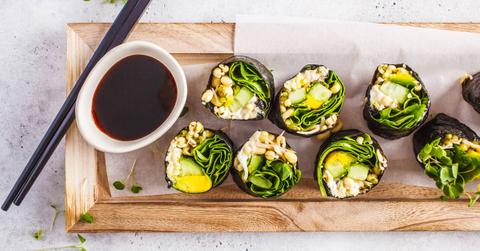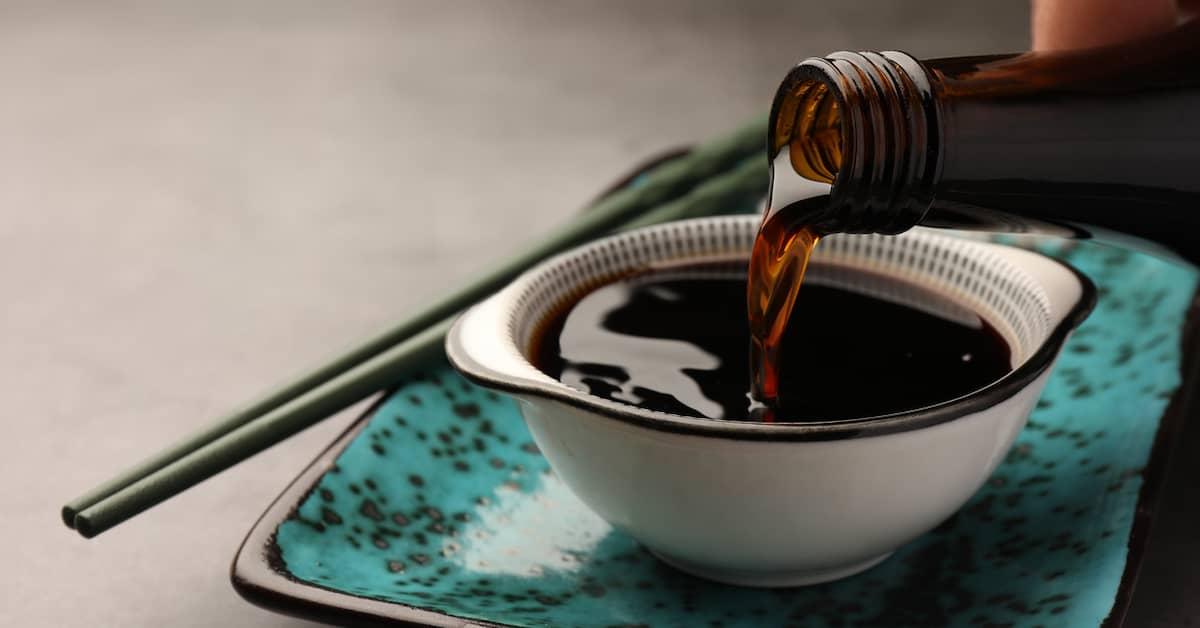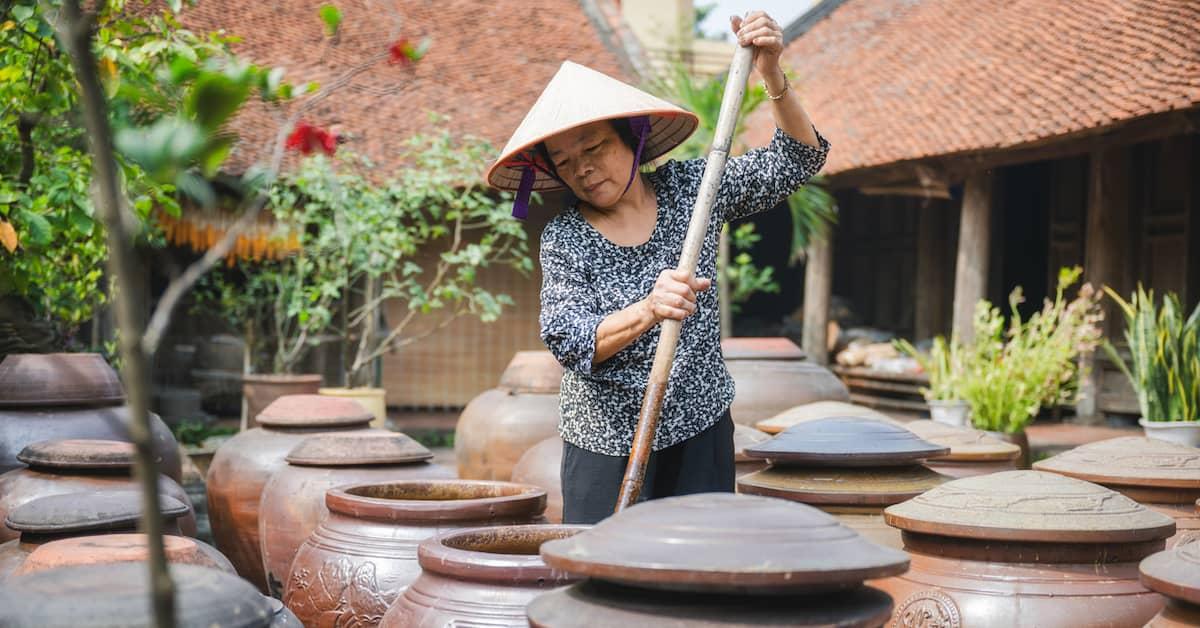Soy Sauce: Is the Popular Asian Condiment OK for Vegans?
Here's how to tell if soy sauce is vegan.
Published Feb. 12 2024, 4:10 p.m. ET

Soy sauce, that ubiquitous condiment in Asian cuisine, adds umami depth to everything from the tangy dipping sauce for your sushi platter to the savory marinade for stir-fried vegetables and noodle dishes. But for those following a plant-based diet, the question often arises: is soy sauce vegan?
The short answer is yes, but with a caveat. We explain what that is as well as how to ensure you don’t accidentally consume any sauce made with animal products. Finally, we look at the difference between regular and dark soy sauce.

Is soy sauce vegan?
Stephanie Wells, a registered dietician at Thyme to Go Vegan, claims that in nearly all instances, soy sauce is safe to eat on a vegan diet. That said, it’s always worth checking the label to be doubly sure.
According to Vegan Friendly, some soy sauce brands will add minor ingredients derived from animal products. Annoyingly, they’re often listed in code, making them difficult to decipher if you’re not fluent in scientific jargon.
On the upside, a lot of companies have opted to make life easier for the plant-based sector of our human cohort by noting on the label that their product is vegan. Livvy from 86 Lemons listed a few of her favorite vegan-certified soy sauces, including those made by Kikkoman, San-J, NPG, and Kishibori Shoyu.
Soy sauce is made with these ingredients.
According to Healthline, most soy sauce is made of four core ingredients: soybeans, wheat, salt, and water. After those ingredients are combined, they are then fermented using either mold or yeast.
If the idea of mold being used concerns you, worry not. Per Science Direct, Aspergillus oryzae (the technical term for the mold) is a key component of many Japanese food products.
But here’s where things get interesting. While most soy sauces all feature the same core ingredients, how they are made makes a big difference. Traditionally, soy sauce is brewed and fermented over a long period of time, allowing for a deeper and richer flavor.

However, San-J explains that some soy sauces are produced in less than a week by using a more industrialized process, resulting in a predictably lower-quality product. If you want to avoid this B-grade soy sauce, make sure you scan the label for the word "hydrolyzed,” a clear indicator that it’s not the real deal.
What is dark soy sauce?
Think of dark soy sauce as soy sauce's richer, older sibling. MasterClass says it's thicker and darker and boasts a milder, sweeter flavor compared to its light counterpart. This depth comes from an extended fermentation process, creating a sauce perfect for glazing your tofurkey and leveling up marinades.
While not as common, dark soy sauce is a key ingredient in many Asian dishes, lending them a uniquely complex flavor you won't get from simply reaching for the regular variety.
Now that you know how to distinguish between good and not-so-good soy sauces and what to look out for to ensure they are truly vegan-friendly, you can navigate the aisles of your local grocery store with confidence. Happy cooking!